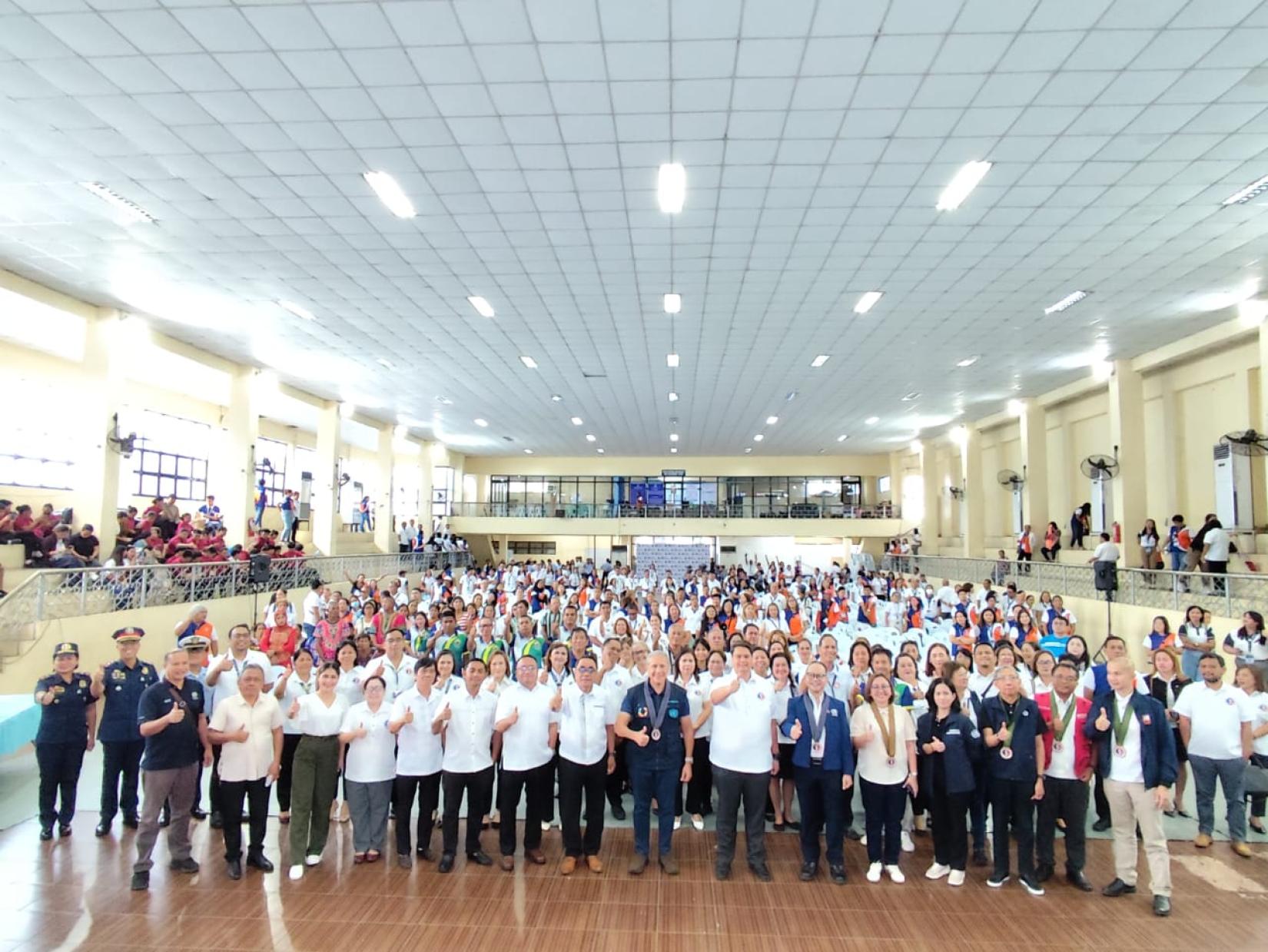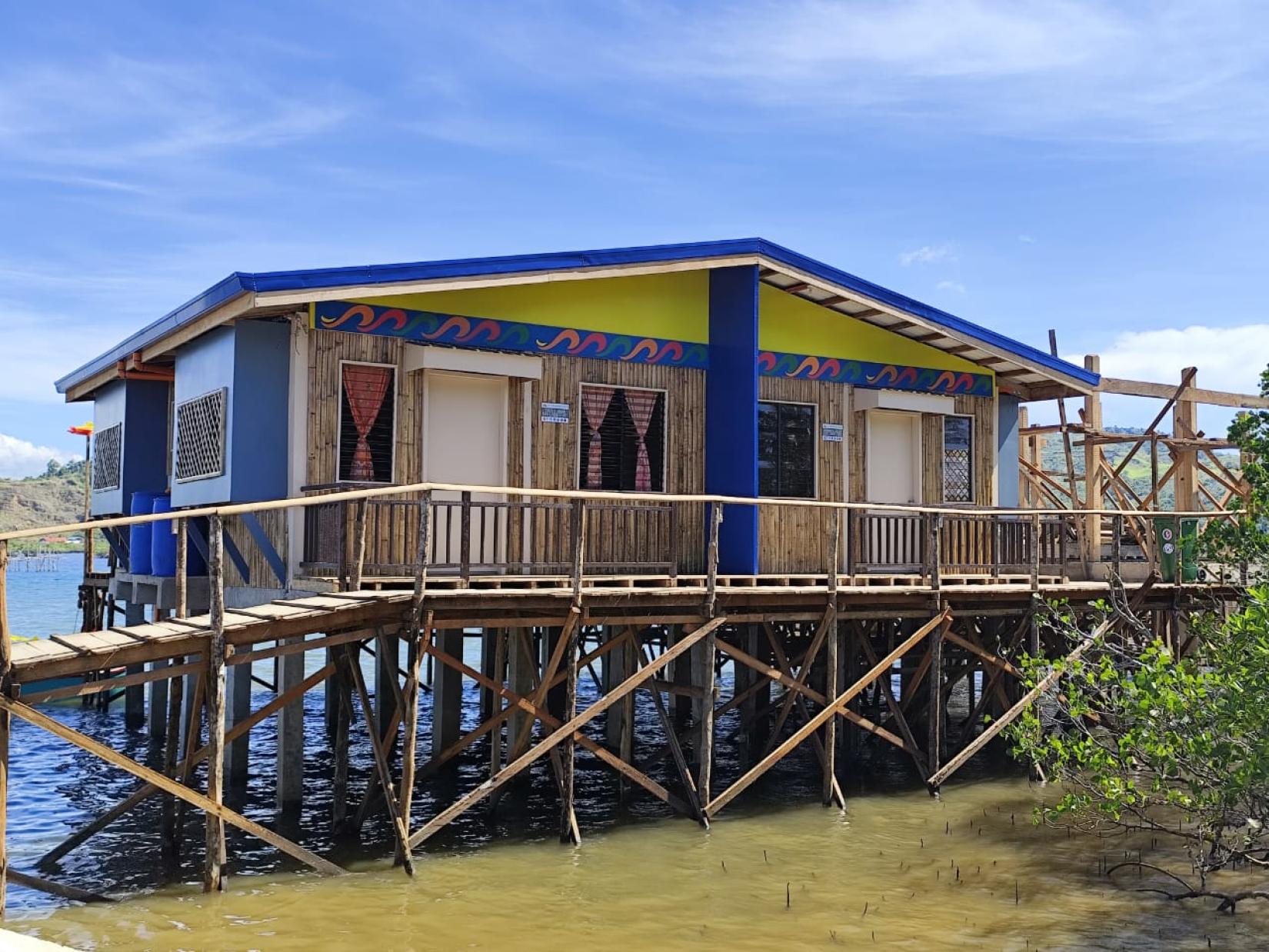United Nations Philippines accelerates SDGs at the local level in Surigao
07 October 2024
SURIGAO CITY, PHILIPPINES – A joint United Nations programme that supports local governments in improving the delivery of services to communities to accelerate the UN Sustainable Development Goals (SDGs) was launched in Surigao today.

The “Localize to Realize: Accelerating SDG implementation for local and vulnerable groups and communities of women, indigenous peoples and informal settler families” (L2R SDG) project implemented by UN Habitat and UN Women and funded by the global Joint SDG Fund looks at enhancing the capacities of local government units (LGUs) in updating their local development plans through an innovative community-driven Voluntary Local Review (VLR) model to better address socio-economic needs and priorities of various population groups.
The United Nations has been supporting VLRs for local governments to assess progress on the Sustainable Development Goals (SDGs) at the local level and identify drivers for acceleration.
“While governments design national policies and development frameworks, cities and municipalities have their finger on the pulse the best and are therefore in a key position to assess challenges and implement development projects to respond to the needs of their population,” said Gustavo Gonzalez, UN Philippines Resident and Humanitarian Coordinator.
The L2R SDG jumpstarts in Surigao City, where some of the most vulnerable communities in the Philippines reside, including the sea-based nomadic Sama Bajau indigenous group and informal settler families.
On top of the list of vulnerable population groups in the city are 200-300 undocumented Sama Bajau and 1,473 informal settler families, which have limited access to basic services and are displaced because of climate change.
“It is all about bringing the global dreams of the Sustainable Development Goals right here where they matter the most – in our barangays here in Surigao, in our homes, and in the lives of our most vulnerable groups,” according to Surigao City Mayor Pablo Yves Dumlao II.
L2R SDG follows a participatory approach, engaging target communities – including women, youth and the elderly – to play an active part in “SDG development planning and monitoring” along with the LGUs.
“There is no ‘one size fits all’ in development. Success relies on understanding the specificities of every city and making the most of the capacities of their people. Localization is critical for inclusive and sustainable development,” Gonzalez said.
Following the Huy-anan nan Bajau sa Surigao (Home for Bajau in Surigao) project of UN Habitat with the Government of Spain through the Spanish Agency for International Development Cooperation (AECID), L2R SDG will provide housing and livelihood support to assist communities in disaster recovery. The agency’s Global Monitoring Framework rollout will also support Surigao City’s VLR development.

"This project reflects our shared commitment to develop our communities," said Violeta Dominguez, AECID General Coordinator.
UN Women’s “Empowering Women for Climate-Resilient Societies Phase II” or EmPower II project, which advocates for climate resilient and empowered communities for women, will support the joint programme’s target to engage Bajau and informal settler women in SDG planning and monitoring with the LGU through access to resources and networks.
Through the L2R SDG, Surigao City is expected to be a benchmark LGU in the localization of the SDGs. Surigao is one of three cities in the Philippines with ongoing VLRs supported by the UN.
“Local governments are essential catalysts in the acceleration of our 2030 goals with their unique, inclusive, and grounded perspectives on the issues that the SDGs are addressing,” Gonzalez said.
The L2R SDG joint programme is funded through the Joint SDG Fund using funding from Spain as well as the governments of Belgium, Denmark, the European Union, Germany, Ireland, Italy, Luxembourg, Monaco, the Netherlands, Norway, Poland, Portugal, the Republic of Korea, Saudi Arabia, Sweden and Switzerland.




